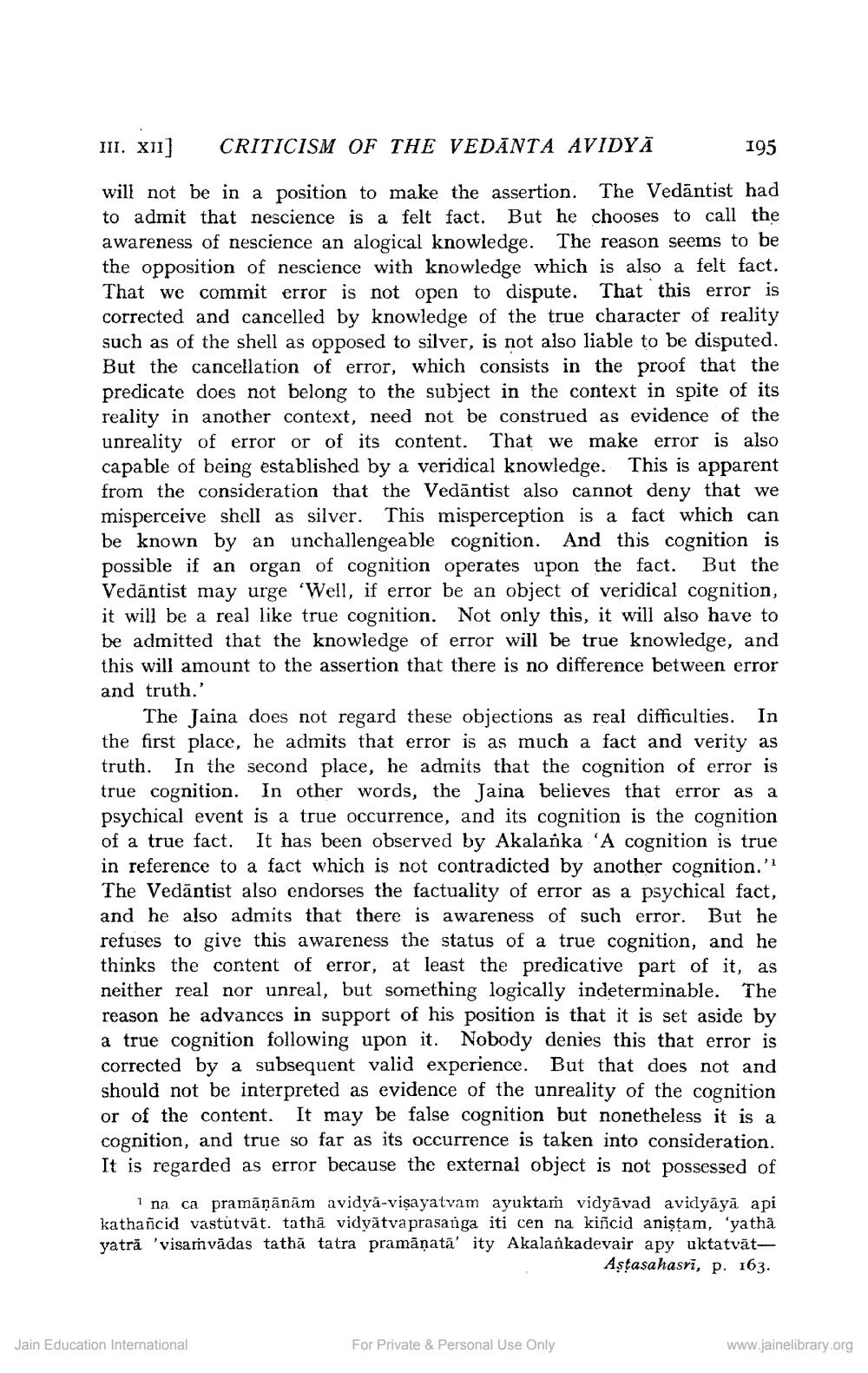________________
III. x11]
CRITICISM OF THE VEDANTA AVIDYA
195
will not be in a position to make the assertion. The Vedāntist had to admit that nescience is a felt fact. But he chooses to call the awareness of nescience an alogical knowledge. The reason seems to be the opposition of nescience with knowledge which is also a felt fact. That we commit error is not open to dispute. That this error is corrected and cancelled by knowledge of the true character of reality such as of the shell as opposed to silver, is not also liable to be disputed. But the cancellation of error, which consists in the proof that the predicate does not belong to the subject in the context in spite of its reality in another context, need not be construed as evidence of the unreality of error or of its content. That we make error is also capable of being established by a veridical knowledge. This is apparent from the consideration that the Vedāntist also cannot deny that we misperceive shell as silver. This misperception is a fact which can be known by an unchallengeable cognition. And this cognition is possible if an organ of cognition operates upon the fact. But the Vedāntist may urge 'Well, if error be an object of veridical cognition, it will be a real like true cognition. Not only this, it will also have to be admitted that the knowledge of error will be true knowledge, and this will amount to the assertion that there is no difference between error and truth.'
The Jaina does not regard these objections as real difficulties. In the first place, he admits that error is as much a fact and verity as truth. In the second place, he admits that the cognition of error is true cognition. In other words, the Jaina believes that error as a psychical event is a true occurrence, and its cognition is the cognition of a true fact. It has been observed by Akalanka A cognition is true in reference to a fact which is not contradicted by another cognition.' The Vedāntist also endorses the factuality of error as a psychical fact, and he also admits that there is awareness of such error. But he refuses to give this awareness the status of a true cognition, and he thinks the content of error, at least the predicative part of it, as neither real nor unreal, but something logically indeterminable. The reason he advances in support of his position is that it is set aside by a true cognition following upon it. Nobody denies this that error is corrected by a subsequent valid experience. But that does not and should not be interpreted as evidence of the unreality of the cognition or of the content. It may be false cognition but nonetheless it is a cognition, and true so far as its occurrence is taken into consideration. It is regarded as error because the external object is not possessed of
1 na ca pramāņānām avidvā-vişayatvam ayuktami vidyāvad avidyāyā api kathañcid vastutvāt. tathā vidyātvaprasanga iti cen na kiñcid anistam, 'yatha yatrā 'visamvādas tathā tatra pramāṇata' ity Akalankadevair apy uktatvāt
Astasahasri, p. 163
Jain Education International
For Private & Personal Use Only
www.jainelibrary.org




